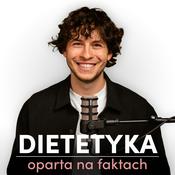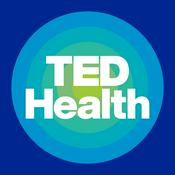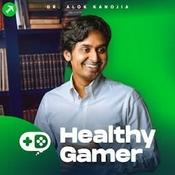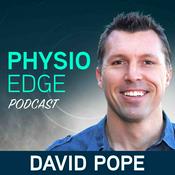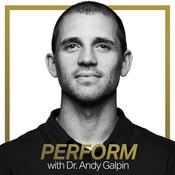611 odcinków
#592: How Much Protein is Actually Healthy? – Eric Helms, PhD & Matt Nagra, ND
27.01.2026 | 1 godz. 26 min.In this episode, the discussion turns to a deceptively simple question that sits at the centre of countless nutrition debates: how much protein do we actually need?
On one side, there are confident claims that very high protein intakes are not just beneficial but essential for maximising strength, performance, and muscle mass. On the other, equally strong assertions that the current RDA is entirely sufficient for most people, and that going beyond it is unnecessary or even harmful.
Dr. Eric Helms and Dr. Matthew Nagra work through what the evidence actually tells us when we step away from slogans and thresholds. What does 0.8 g/kg represent, and just as importantly, what does it not? At what point do higher intakes stop meaningfully improving muscle-related outcomes? And where do concerns about kidney function, longevity, and chronic disease fit when we look at long-term data rather than isolated mechanisms?
Rather than treating protein as a single number to defend or dismiss, this conversation places intake in context: training status, ageing, health outcomes, source and optimising for specific goals.
Timestamps
[05:19] Discussion starts
[07:18] Setting the scene: protein intake and health
[09:38] Health outcomes and protein intake
[10:27] Mechanistic measures vs. longitudinal outcomes
[15:47] The RDA: purpose and limitations
[19:19] Higher protein recommendations: where do they come from?
[21:48] Protein intake for athletes and general population
[27:25] Dose response and optimal protein intake
[44:59] Statistical errors in Morton meta-analysis
[46:07] Comparing meta-analyses: Morton, Tagawa, and Nunez
[56:23] Mechanistic claims and protein intake
[59:49] Nitrogen balance and protein requirements
[01:11:55] Protein sources and health outcomes
[01:18:13] Summarizing optimal protein intake
[01:24:31] Key ideas segment (premium subscribers only)
Related Resources
Go to the episode page (with linked studies & resources)
Join the Sigma email newsletter for free
Subscribe to Sigma Nutrition Premium
Enroll in the next cohort of our Applied Nutrition Literacy course
Dr. Helms: MASS Research Review
Muscle & Strength Pyramids books
Instagram: @helms3dmj
Dr. Nagra: Instagram: @dr.matthewnagra
Dr. Nagra's website- Maintaining the ability to carry out everyday tasks and live independently is often described as a cornerstone of healthy ageing. But what actually happens to muscle strength, power, and functional ability as we get older? And how inevitable is their decline?
At what point do changes in muscle function really begin to matter for day-to-day life? Is loss of strength an unavoidable consequence of ageing itself, or does it reflect something more modifiable? If declines are not fixed, what kinds of training or lifestyle interventions genuinely make a difference, and how strong is the evidence behind them?
In this episode, exercise physiologist Dr Brendan Egan examines these questions through the lens of both epidemiological data and controlled training studies in older adults. What do we learn from short-term resistance training interventions lasting just a few months? Do the gains persist once supervised training ends? And what does this tell us about the practical challenges of maintaining functional capacity over the long term?
The conversation also explores the idea of "use it or lose it" in muscle function, the role of resistance training in extending healthspan, and how exercise programmes can be designed to support independence later in life. Ultimately, the episode asks a simple but crucial question: what does the evidence actually say about staying strong, capable, and functionally independent as we age?
Dr. Brendan Egan is an Associate Professor of Sport and Exercise Physiology the School of Health and Human Performance at Dublin City University. Currently, he is Associate Dean for Research in the Faculty of Science and Health.
Timestamps
[03:49] Understanding functional capacity
[05:56] The importance of muscle strength and mass
[14:09] Epidemiology and strength training
[25:07] Concurrent training in older adults study
[31:05] Barriers to strength training in older adults
[34:18] Misconceptions about older adults and exercise
[39:13] Exercise snacking and SBAE
[51:04] Key ideas segment (Premium-only)
Links & Resources
Go to episode page (with links to studies)
Join the Sigma email newsletter for free
Subscribe to Sigma Nutrition Premium
Enroll in the next cohort of our Applied Nutrition Literacy course - Nutrient density refers to the concentration of vitamins and minerals in crops relative to their yield. There are widespread claims that today's fruits, vegetables, and grains contain fewer micronutrients than in decades past, often linked to modern farming practices or soil degradation.
This issue is important because if staple crops become less nutritious, it could silently undermine dietary quality and contribute to micronutrient deficiencies ("hidden hunger") in populations.
Dr. Edward Joy is uniquely qualified to address this topic. As a senior research fellow in food systems and nutrition at Rothamsted Research and an associate professor at the London School of Hygiene & Tropical Medicine, his work centers on the intersection of agriculture and nutrition.
In this conversation, Dr. Joy draws on evidence from agronomy and public health to clarify whether the nutrient content of crops has indeed declined, what factors might be responsible (from soil health to plant breeding and climate change), and what we can do to improve the situation.
The discussion emphasizes an evidence-based perspective on soil nutrients, crop varieties, and interventions, cutting through myths to identify real concerns and practical solutions.
Timestamps
[00:55] Interview
[04:49] Understanding nutrient density and soil health
[10:25] Historical evidence and crop experiments
[20:39] Impact of climate change on crop nutrition
[24:05] Potential solutions and future research
[30:34] Translating research to human health
Related Resources
Go to episode page
Join the Sigma email newsletter for free
Subscribe to Sigma Nutrition Premium
Enroll in the next cohort of our Applied Nutrition Literacy course
Rothamsted Research
Dr. Joy's profile page
X/Twitter: @edward_joy1
@NutritionDanny - This is a Premium-exclusive episode of the podcast. To listen to the full episode you need to be subscribed to Sigma Nutrition Premium.
Recently we (Danny Lennon & Alan Flanagan) were invited to 'Processing the Evidence', a "behind closed doors" workshop to discuss the latest scientific evidence on the role of processed foods in human health. The event was organized by Professors Ciarán Forde and Vincenzo Fogliano of Wageningen University in the Netherlands.
The workshop attendees included a range of prominent researchers across a range of domains related to food processing, nutrition science, and public health. The sessions included open discussions on current evidence, knowledge gaps and challenges within the UPF debate.
There were several structured sessions looking at different sub-topics, such as:
Emulsifier-gut interactions
Ultra-processing and its effect on food matrix and bioavailability
Food liking and hedonic overeating
UPFs: Interpreting nutritional epidemiology and RCTs
New trial data: the PROMENADE trial, the RESTRUCTURE Trial, etc.
In this episode, Alan and Danny review some of the key talking points and their takeaways from this event.
Timestamps
[00:31] Event overview: processing the evidence
[04:44] Conference insights with Dr. Alan Flanagan
[07:52] Hypotheses on ultra processed foods
[11:53] Microbiome and additives panel
[21:51] Food science and technology panel
[33:21] Behavioral aspects of food consumption
[38:10] Nutritional epidemiology session
[47:19] Discussion on dietary pattern classification
[50:19] The role of ultra-processed foods in public health policy
[54:18] Clinical and metabolic data on processed foods
[01:00:55] Critique of the NOVA classification system
[01:08:03] Concluding thoughts on ultra-processed foods
[01:23:12] Key ideas and methodological standpoints
Related Resources
Subscribe to Sigma Nutrition Premium
Go to episode page
Join the Sigma email newsletter for free
Enroll in the next cohort of our Applied Nutrition Literacy course - This episode explores how asking better questions and using stronger methods can resolve much of the confusion in nutrition science. Dr. Daniel Ibsen discusses why nutrition research often produces conflicting results and how careful methodological thinking can clarify true diet-disease relationships.
Nutrition science has unique challenges – diets are complex, people self-report their food intake imperfectly, and we can't easily run long-term diet experiments on people. Dr. Ibsen explains how embracing concepts like food substitution analysis, the "target trial" framework, and objective dietary assessment can strengthen evidence.
The episode centers on methodological insights that make nutrition research more reliable and actionable. Key themes include defining dietary comparisons explicitly (the "compared to what?" question), considering people's starting diets, and using causal inference techniques to design better studies.
Daniel B. Ibsen is an epidemiologist and nutritional scientist whose work bridges rigorous causal inference methods with real-world diet and cardiometabolic disease research. He is an Associate Professor at Aarhus University, Denmark.
Timestamps
[00:13] Introduction to the topic
[03:23] Interview start
[08:02] The importance of asking the right questions in nutrition science
[22:18] Understanding causal inference in nutrition
[28:58] Challenges and approaches in nutrition epidemiology
[32:07] Mimicking dietary interventions in studies
[32:55] Target trial framework
[39:52] Objective vs. subjective dietary assessment
[47:01] Why causal effects of ultra-processed foods cannot be identified
Links/Resources:
Go to the episode page (with links to mentioned studies)
Join the Sigma email newsletter for free
Subscribe to Sigma Nutrition Premium
Enroll in the next cohort of our Applied Nutrition Literacy course
Więcej Zdrowie i Fitness podcastów
Trendy w podcaście Zdrowie i Fitness
O Sigma Nutrition Radio
Discussions about the science of nutrition, dietetics and health. The podcast that educates through nuanced conversations, exploring evidence and cultivating critical thinking. Hosted by Danny Lennon.
Strona internetowa podcastuSłuchaj Sigma Nutrition Radio, Live Better i wielu innych podcastów z całego świata dzięki aplikacji radio.pl
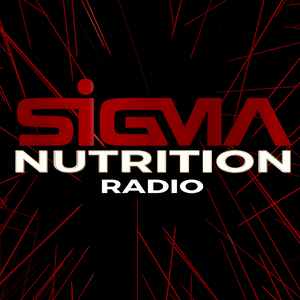
Uzyskaj bezpłatną aplikację radio.pl
- Stacje i podcasty do zakładek
- Strumieniuj przez Wi-Fi lub Bluetooth
- Obsługuje Carplay & Android Auto
- Jeszcze więcej funkcjonalności
Uzyskaj bezpłatną aplikację radio.pl
- Stacje i podcasty do zakładek
- Strumieniuj przez Wi-Fi lub Bluetooth
- Obsługuje Carplay & Android Auto
- Jeszcze więcej funkcjonalności


Sigma Nutrition Radio
Zeskanuj kod,
pobierz aplikację,
zacznij słuchać.
pobierz aplikację,
zacznij słuchać.






